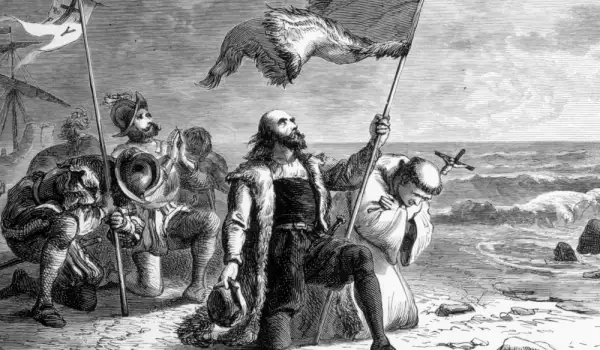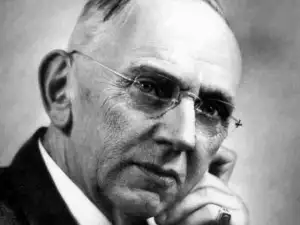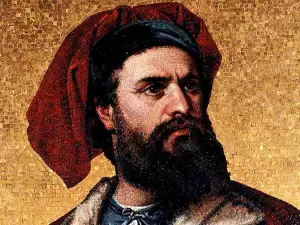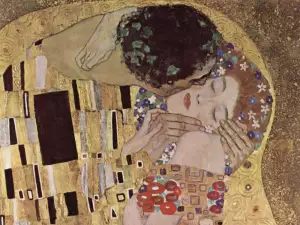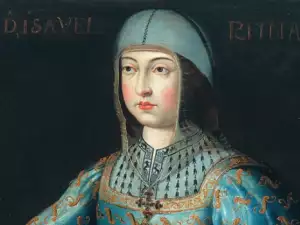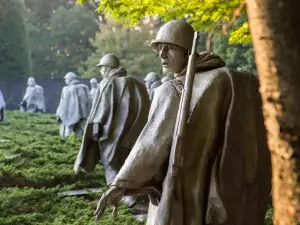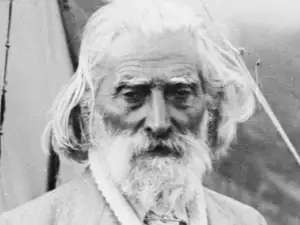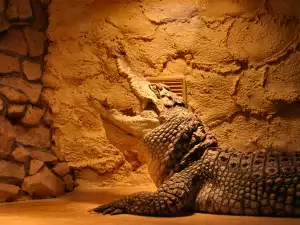When we talk about the Great Geographical Discoveries made by European navigators in the Middle Ages, XV-XVIII centuries, the first name that comes to mind is that of Christopher Columbus. Undoubtedly, this is the person with the greatest contribution to the knowledge of the world of his time. The discoveries made by Columbus are of world importance, because thanks to them the American lands were included in the geographical maps, after which the colonial empires were created. It changes the nature of the world forever. Who is the man who changed the history of the world with his discoveries?
Christopher Columbus - origin, education and preparation for seafaring
According to other testimonies and documents, it is assumed that the date of birth of Christopher Columbus is between 26. VIII. and 31.X. 1451 in Genoa. The father of the future seafarer had a simple profession for the time - a weaver. According to the existing traditions of the time, boys were prepared to inherit their fathers' trade, and it is probable that Columbus attended a school for weavers, where he learned the trade, became literate and along with this acquired a general knowledge of geography. Between 1470-1473, the father of the future navigator became a merchant and the boy also worked in the family business. He later married a woman named Felipa. The year of his marriage is not clear, but it is assumed to have been in 1476. From that year to 1486, the great traveler lived in Portugal.
One year after his marriage, Columbus traveled to England. It was during these years that his interest in seafaring was apparently born in search of new routes from Europe to India, which in the minds of Europeans was a coveted place, a land of spices. Columbus drew up his project for the shortest route to India, which all Europeans were looking for at that time. He presented his plan to the King of Portugal to raise funds for an expedition, but the plan was rejected. This did not discourage him and he moved to Castile, where he managed to organize an expedition with the help of local merchants and bankers. This is the first of all his voyages.
The expeditions of Christopher Columbus. Discoveries.
Christopher Columbus made a total of four round-the-world voyages and made some of the greatest discoveries of his time.
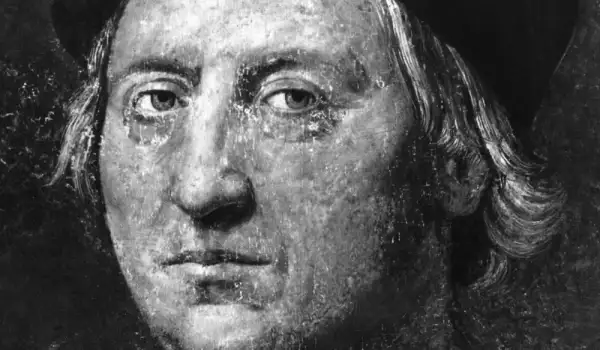
First voyage (1492-1493)
Christopher Columbus set out on his first voyage with the ships Santa Maria, Pinta and Niña with 90 sailors on board. He set sail on August 30, 1492. From the Canary Islands the expedition set out in a westerly direction. Columbus' ships crossed the Atlantic. Even before he set foot on solid ground, Columbus made his first discovery, in September 1492 (Sargasso Sea). After sailing for 2 months in the open ocean, Columbus' sailors reached the Bahamas on October 12, 1492. This is the official date of the discovery of the new continent - America. The next day, Columbus first set foot on the island of San Salvador, not suspecting that he had discovered a new land. In the next 10 days, the sailors also circumnavigated other Bahamas Islands. After a few days, Columbus also discovered Cuba. He also reached another island - Haiti and returned to Castile in 1493.
Second voyage (1493-1496)
Immediately after the first voyage, Columbus set off again, this time for three years (1493-1496). The second expedition was larger, he traveled with 17 ships and his sailors numbered more than 1, 500 people. In the autumn of the same year, Columbus discovered the two islands - Dominica and Guadeloupe and about 20 of the Lesser Antilles. In the spring of the following year, he discovered Jamaica and made several other discoveries. This voyage brought him great recognition. He received the title of general and viceroy of the newly discovered lands.
Third voyage (1498-1500)
The third voyage began 2 years later with 6 ships, 3 of which were led by Christopher Columbus himself. He crossed the Atlantic again and in the summer of the same year discovered Trinidad and the Orinoco River. This began the discovery of the South American continent. The following month, Columbus' sailors first set foot on a new island - Margarita, and then disembarked in Haiti. In 1500, the great navigator was arrested and sent to Castile, but there he was set free by the king's decision.
Fourth voyage (1502-1504)
Columbus made a fourth voyage because he received permission to continue looking for a route to India. He left with 4 ships and in June of the same year he reached the island of Martinique, and at the end of the following month he reached the Gulf of Honduras. By the spring of 1503, he reached the shores of Honduras from the Caribbean, discovered Nicaragua, Costa Rica and Panama. He also reached the Gulf of Uraba. He returned north but was shipwrecked off Jamaica. He received help and returned to Castile before the following year.
Until the end of his life Columbus was convinced that he had discovered the way to India and had reached the shores of East Asia. Because of this story he mistakenly called the local population of the newly discovered lands - Indians. The people who inhabited the American continent remained known to the world with this name. The lands he discovered were colonized, the local population massacred. The great colonial empires were created. Several countries that participated in the discovery of new lands divided the world among themselves in the following years, and this changed their development forever. They outstripped all others because they had the untold wealth of their colonies at their disposal for centuries to come.
The discovery of America has historical significance not only for the colonial states, but also for the whole continent, because the discoveries brought to Europe new and unknown cultures, which today are the basis of agriculture and changed beyond recognition nutrition, as well as the whole life of the Europeans.
The discovery of America was also fateful for the newly discovered lands. Colonization changed the course of historical development of these lands as well. The local population was largely destroyed, especially that part of it which lived around the navigable rivers and in more accessible places. Huge rich territories were liberated, which were subsequently settled by colonists - Europeans.
Destroyed and lost forever is an extremely rich local culture, entire nations and civilizations disappeared. The surviving natives, who had become a minority, were everywhere overwhelmed by the new settlers.
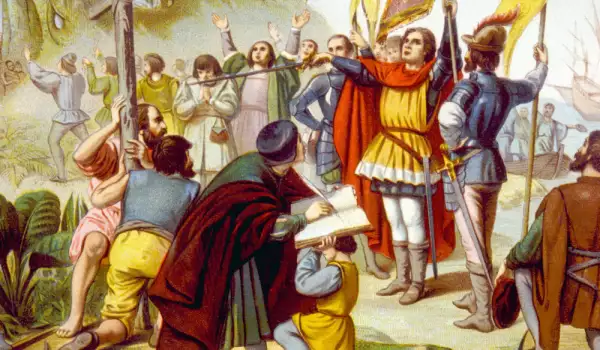
Columbus died in the Spanish city of Valladolid in 1506.
More myths and facts about Christopher Columbus
• Christopher Columbus was by no means the first European to set foot in America. Around the year 1000, the Viking Leif Eriksson traveled to Greenland and reached the shores of present-day Canada. The great merit of Columbus, which makes him a discoverer of new lands, is that after he first reached the new shores, they became part of the general map of the world and this changed the course of history for millions of people.
• Columbus's voyages have another merit - he traced the sea routes and captured the direction of the winds in the direction of the Caribbean, as well as the latitudes in which the wind blows in the direction of Europe. This was very important in the era when the open lands were colonized and navigation to them was enhanced.
• According to one myth, Columbus died abandoned and in poverty. This is really just a myth. Although his material condition did not fully correspond to his merits, Columbus was not poor. He lived comfortably in Spain. After his death, his heirs filed lawsuits against the Spanish crown and ended up with a substantial fortune.
• Another widespread myth in America today is that Columbus set out on an expedition to prove that the Earth is round. This is a myth that is devoid of meaning. This fact was also known to the ancient Greeks.
On the other hand, Columbus was a great navigator, but he was self-taught. He suffered from quite a few delusions about the size of Europe compared to reality. He also believed that Japan was further away from China than it actually was. Therefore he calculated that he would reach Asia if he sailed west, which was a wrong calculation. However, he had the luck of the adventurer and reached another land - America. He turned out to be a discoverer.
Despite all the myths, delusions and fabrications, one undeniable fact cannot be denied - Christopher Columbus had a decisive influence on the rapid and radical change of the world with his works. This has secured him an eternal place in history.
